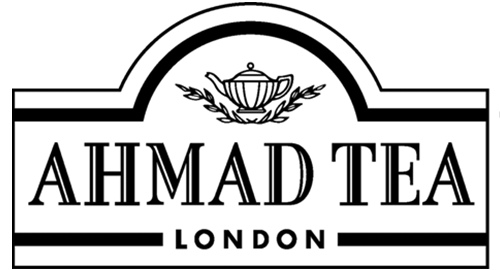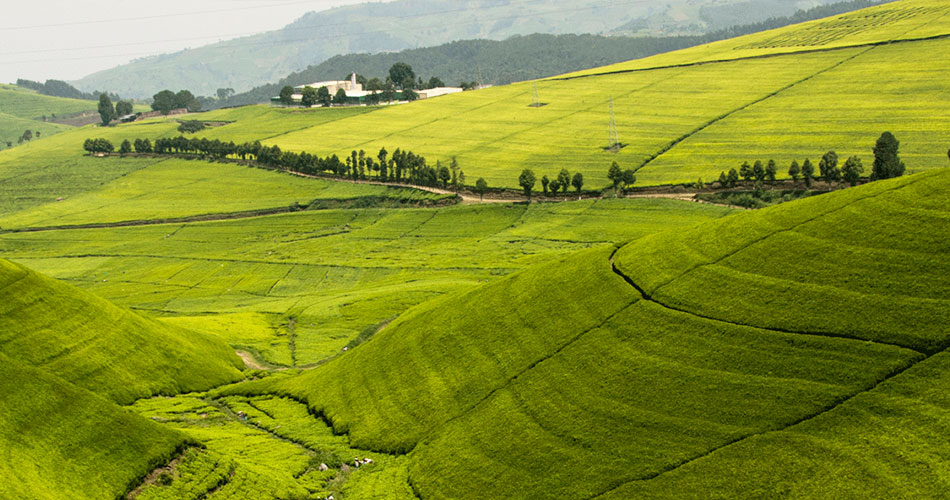Since the 1950s, Rwanda has been producing some of the world’s best teas. Tea has become Rwanda’s second largest foreign exchange earner after coffee and a source of income for thousands of farmers. Rwanda’s high altitude of 1,600-2,500 metres makes it ideal for tea cultivation. This elevation helps to moderate the climate in this equatorial region and the mountains help capture much-needed rainfall. Rwanda’s rich volcanic soil help produce teas with a distinctive flavour. Rwanda’s spectacular rolling hills have earned it the sobriquet ‘a land of a thousand hills’.
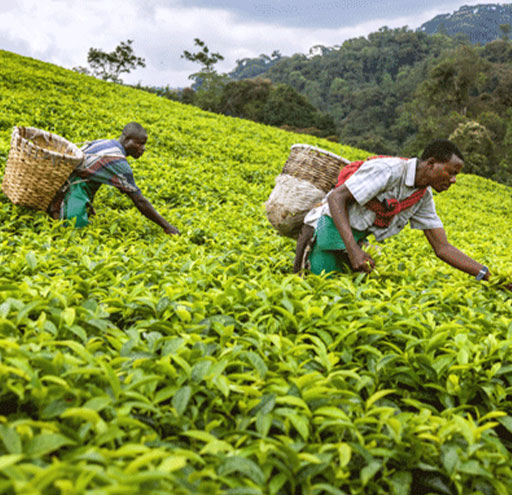
In the late 90s the government embarked on a privatisation programme of its core industries, namely tea and coffee.
The main goal of this was to reduce the country’s dependence on subsistence farming. Rwandan owned companies purchased some of the best tea estates and have invested in upgrading them. A few years ago Mcleod Russel, a major Indian producer of Assam Tea, purchased two of Rwanda’s best tea estates.
Just like in other tea producing countries in Africa, tea in Rwanda is grown on large plantations and by smallholder tea farmers. Tea can be found on hillsides as well as in well-drained peaty marshland. Although the CTC method of production (tea designed for teabags) dominates production, in recent times Rwanda has experimented with producing black teas using the orthodox method. One tea estate located north of Kigali, the capital, produces some of the best orthodox teas in Africa with a flavour similar to medium grown Ceylon Teas.
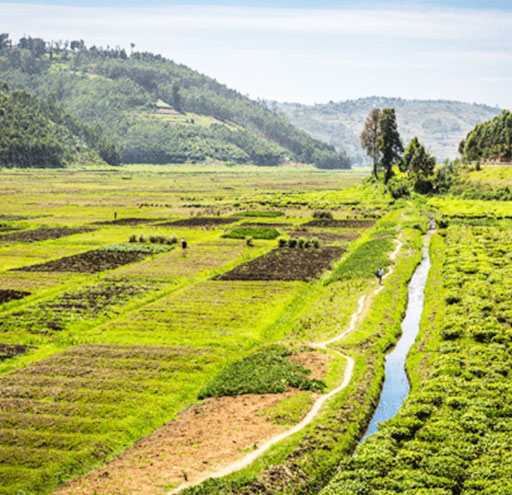
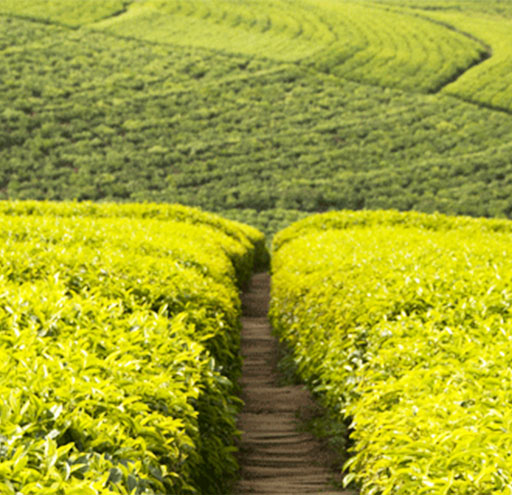
At Ahmad Tea we use Rwandan CTC teas in our blends due to their fresh flavour and briskness.
Also, Rwandan CTC teas are perhaps the brightest teas produced in the world.
They produce a bright, rich golden colour liquor when made with milk. Due to their excellent quality, Rwandan teas fetch the highest prices in the weekly auction in Mombasa.
CONTINUE READING
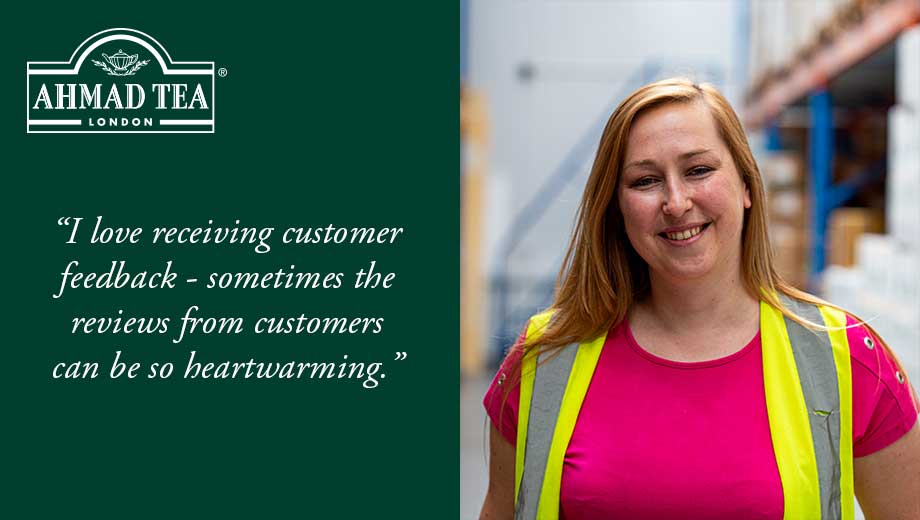
Employee Spotlight for Dagmara Golonka
Meet Ahmad Tea's Dagmara! Learn about her amazing journey from machine operator to Ecommerce Executive and her best advice!
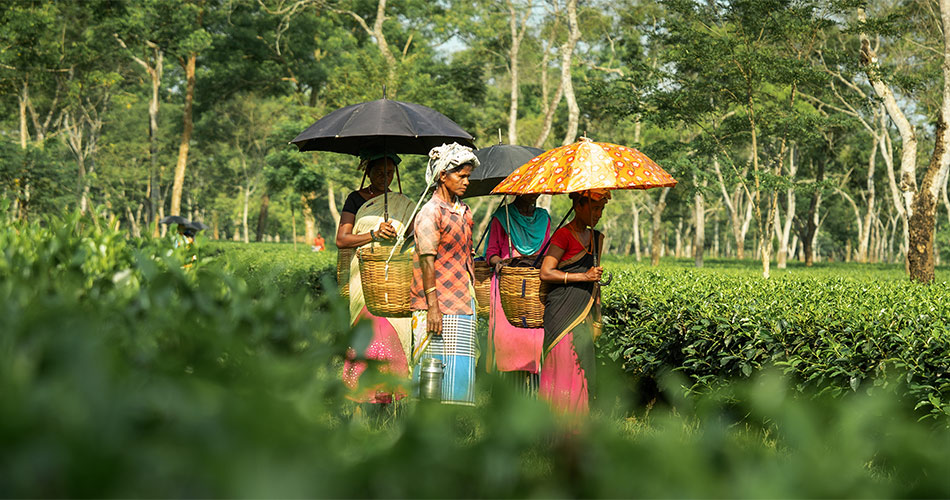
Ahmad Tea Sustainability Report 2024
Sharing Infused with impact: Our Sustainability Report for 2024, capturing all of our work, striving for a more sustainable and…
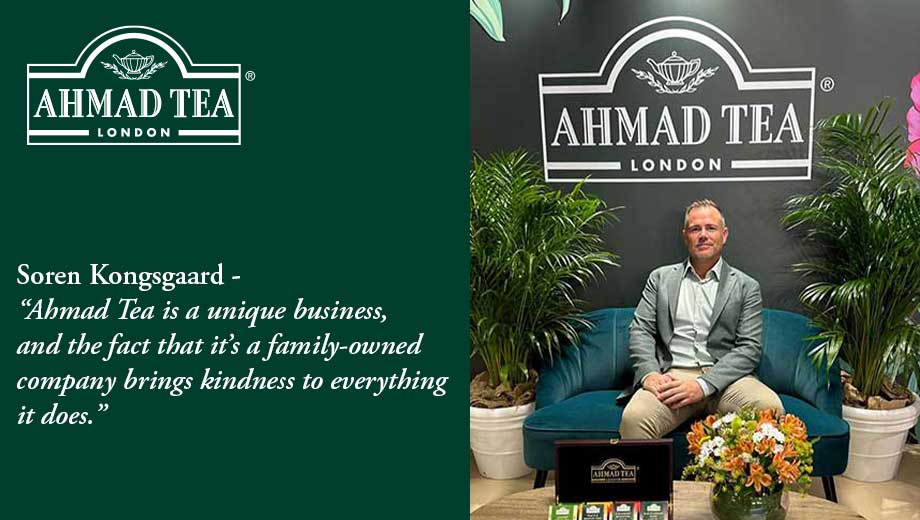
Soren Kongsgaard – Key Account Manager
Meet Soren Kongsgaard, Key Account Manager for South-East Asia and Africa. With 20+ years' experience in global food and drink…
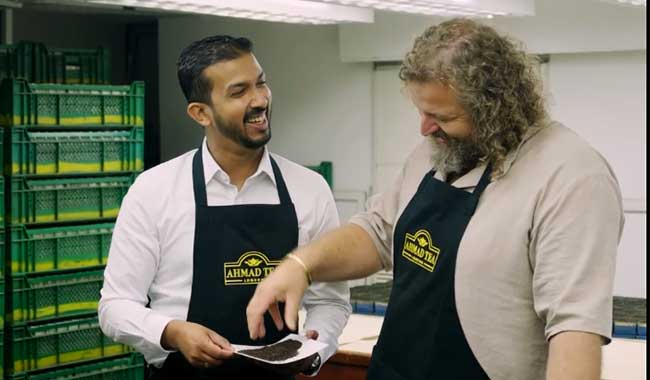
A Celebration of Tea Culture and Quality
Ahmad Tea hosted a celebration of tea culture and quality in the Czech Republic with chef Josef Maršálek, showcasing his…
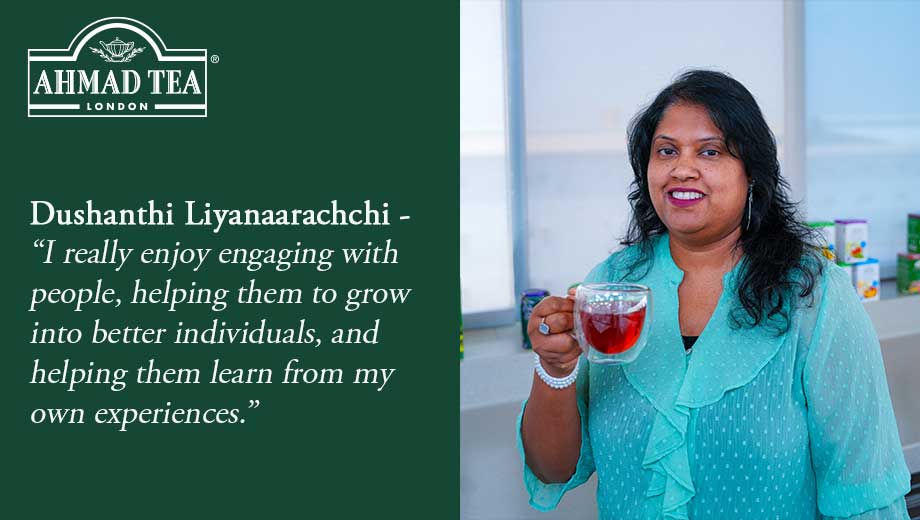
Dushanthi Liyanaarachchi on 22 Years of Dedication to Ahmad Tea
In this Employee Spotlight, we interview Dushanthi Liyanaarachchi, head of the order processing department at Ahmad Tea. Discover her 22-year…
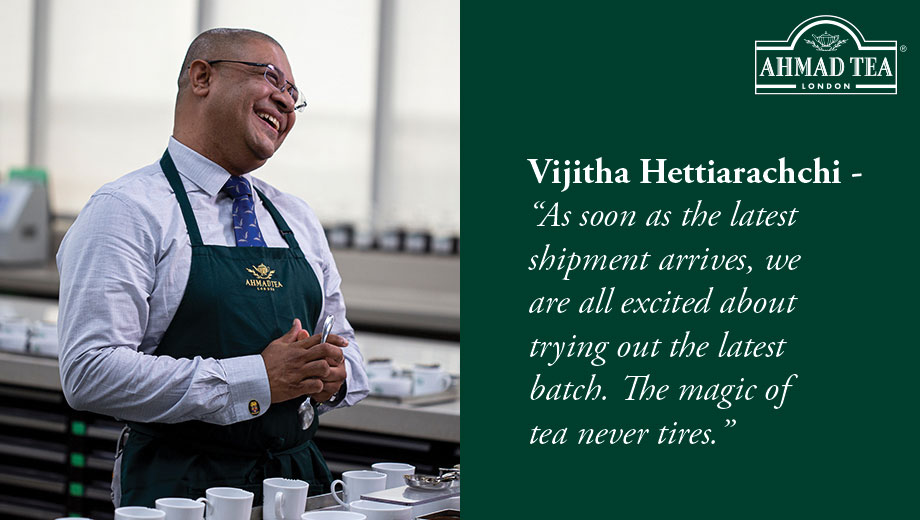
Vijitha Hettiarachchi – Senior Tea Taster
Introducing Vijitha Hettiarachchi, Ahmad Tea’s seasoned tea taster based in our Emirates factory. With a decade at Ahmad Tea and…
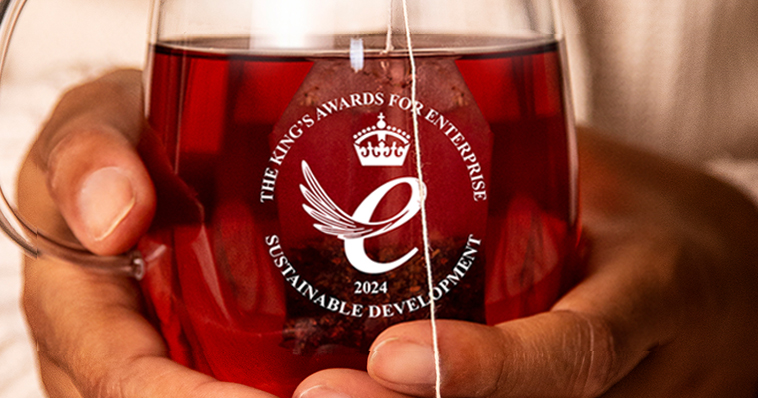
Ahmad Tea Wins King’s Award for Enterprise
We’re delighted to announce that we have received a King’s Award for Enterprise for our sustainable development programmes. The prestigious…
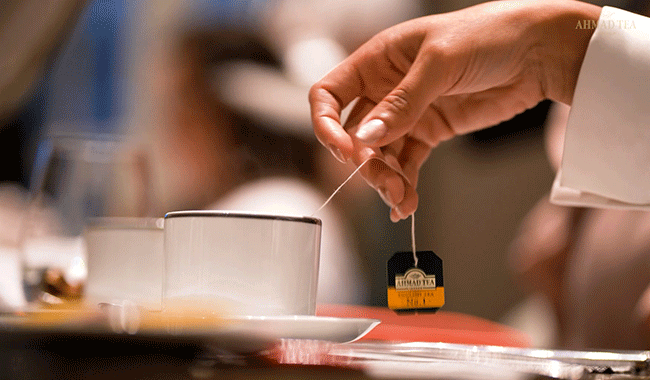
Ahmad Tea’s partnership with Aurora Fine Foods
Ahmad Tea proudly highlights partnership with Aurora Fine Brands, our esteemed distributor in Brazil since 2019, marking shared success.
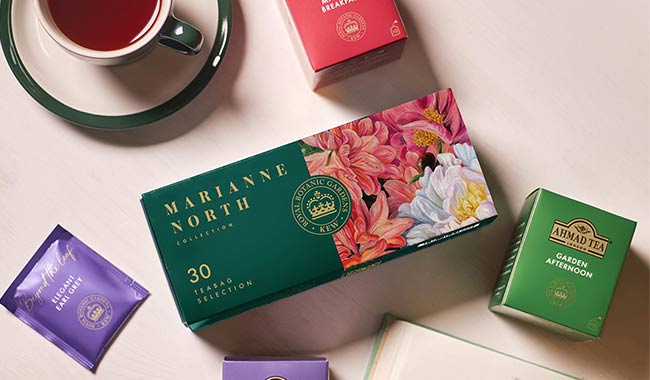
Marianne North Tribute Tea for National Tea Day
Explore our Marianne North tribute teas for National Tea Day at Royal Botanic Gardens, Kew.
